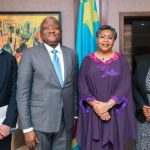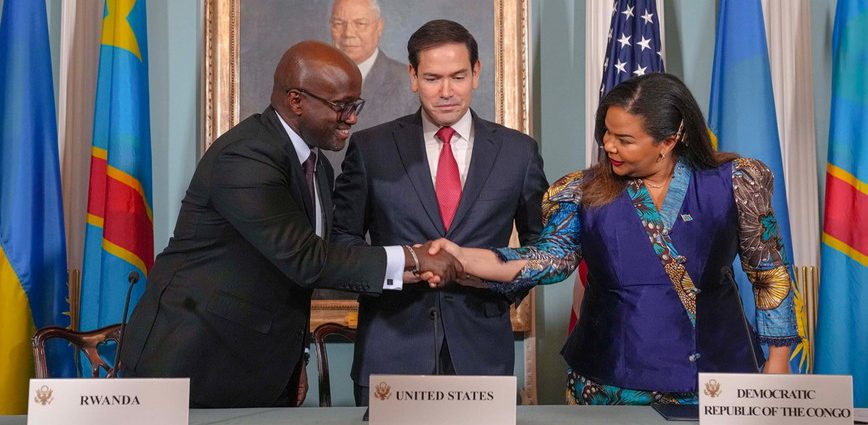In a landmark diplomatic breakthrough, the Democratic Republic of Congo (DRC) and Rwanda signed a peace agreement on June 27, 2025, in Washington, D.C., aimed at ending decades of violence in eastern DRC. The accord was brokered with the backing of the United States, which played a pivotal role in bringing the two nations to the negotiating table.
The agreement marks a significant step toward resolving one of Africa’s most protracted and devastating conflicts—one that has claimed millions of lives and destabilized the Great Lakes region for decades.
Billed as a historic milestone, the Washington Agreement commits both nations to a ceasefire, mutual respect for territorial integrity, and a renewed focus on restoring peace and stability, especially in eastern Congo, where rebel group M23 has intensified its activities in recent months.
U.S. President Donald Trump, whose administration helped mediate the deal, delivered a firm warning: “If anyone violates this agreement, there will be consequences.” He signaled that violators could face severe diplomatic, financial, or military sanctions, underscoring the seriousness of international support behind the accord.
Building on a Declaration of Principles signed in April 2025, the agreement extends beyond security matters to promote regional cooperation. Key areas of collaboration include:
- Hydropower development
- Joint conservation of biodiversity and national parks
- Transparency in mineral resource extraction and trade
The deal envisions a long-term partnership reinforced by regional institutions such as the International Conference on the Great Lakes Region (ICGLR), the Common Market for Eastern and Southern Africa (COMESA), and the East African Community (EAC). These platforms are expected to support peacebuilding, deepen economic integration, and reduce illicit cross-border activity.
Permanent ceasefire arrangements, cross-border security mechanisms, and coordinated development projects form the backbone of the peace framework.
If implemented in good faith, the Washington Agreement could usher in a new chapter for Central Africa—one defined by cooperation rather than conflict, and by shared prosperity instead of mutual suspicion.
The international community has pledged to closely monitor compliance, with the hopes of ensuring accountability and offering renewed optimism for millions affected by decades of displacement and instability.















